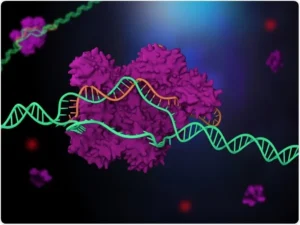Cancer is a fear that many people carry with them, and rightly so. This complex and often unpredictable disease affects millions of people worldwide. Modern biotechnology, however, offers hope, thanks to an intriguing frontier: personalized cancer therapy. Instead of using standard medications, we can now tailor treatments to an individual’s specific genetic profile. This approach not only improves effectiveness but can also reduce side effects and improve survival. Driven by advances in genetics and molecular biology, biotechnology is leading the way, delivering more precise, targeted, and effective treatments. This article explores how biotechnology is shaping the future of cancer treatment and what that means for patients worldwide.
Towards Personalized Cancer Therapy
Traditional cancer treatments, including radiation and chemotherapy, have long been the first line of treatment, but they can have serious side effects. These drugs attack both healthy and malignant cells, resulting in a range of side effects, variable effectiveness, and non-selective efficacy. Personalized cancer therapy turns this concept on its head. Instead of using a generic treatment, doctors are now examining the genetic and molecular profile of a patient’s tumor to determine the most effective and least harmful treatment. Biotech companies are leading the way in developing these targeted treatments by using data from DNA sequencing and molecular diagnostics to pinpoint specific mutations and abnormalities. This makes treatments that fight cancer with sniper-like precision more effective and often more successful than traditional approaches.
Biotech Tools: Molecular Profiling and Genomics
Genome sequencing is a cornerstone of personalized cancer treatment. The procedure maps the DNA of a patient’s tumor and identifies mutations that may be causing the cancer to spread. As biotech companies develop powerful technologies that can quickly and cheaply sequence genes, this once-specialized service is now accessible to more patients. As a complement to genomics, molecular profiling can further investigate the molecular activity of cancer cells. Understanding the behavior of specific genes and proteins in a tumor helps doctors match patients with the treatments that are likely to be most effective. This is especially important for tumors with multiple subtypes, such as breast or lung cancer. Thanks to advances in biotechnology, diagnosing lung cancer, for example, no longer requires a standard treatment plan but can now be tailored to a treatment plan based on the presence of an EGFR mutation, ALK rearrangement, or other genetic markers.
Immunotherapy and the Role of Biotech Innovation
Immunotherapy is one of the most impressive developments in personalized cancer treatment, and biotechnology is improving its effectiveness. Unlike traditional therapies that directly target cancer, immunotherapy helps the body’s immune system recognize and fight cancer cells. Biotech companies are developing customized antibodies, checkpoint inhibitors, and CAR-T cell therapies that are tailored to a patient’s immune profile. CAR-T therapy, for example, involves extracting a patient’s own T cells, genetically modifying them in the lab to better fight cancer, and then injecting them back into the patient. This strategy has proven incredibly successful in certain types of leukemia and lymphoma. Biotech innovation is also helping to reduce the risks of these drugs by improving safety and expanding their use to more types of cancer. As research continues, immunotherapy will likely become an important weapon in the toolkit for personalized cancer treatment.
Biomarkers and Predictive Testing
Another key piece of the personalized treatment puzzle is biomarkers, which have received significant funding from biotech companies. Typically found in blood, tissue, or other bodily fluids, these biomarkers can help understand how cancer develops and how it responds to specific treatments. With biomarkers, predictive testing can guide treatment decisions by ensuring that patients receive the most effective medications from the start. For example, targeted therapies such as trastuzumab can help patients with HER2-positive breast cancer; these therapies will not work for patients with HER2-negative breast cancer. Biotech companies are using liquid biopsies and other advanced technologies to identify these markers without invasive surgery. Liquid biopsies can detect cancer-related substances in the blood, including fragments of DNA. This allows for faster adjustments if needed, real-time tracking of treatment progress, and earlier detection of problems. The importance of biotechnology in improving the reliability and availability of these tools cannot be overstated—it is transforming cancer diagnosis and treatment.
The Equity and Accessibility Dilemma
While great strides have been made in personalized cancer treatments, achieving a level of accessibility that is accessible to all remains a challenge. Because many treatments are expensive, not all insurance plans cover some of them. Biotech companies can inspire creativity, but they must also work to make these treatments more affordable and universally accessible. Furthermore, research and studies of treatments are largely concentrated in high-income countries, where knowledge and applications for diverse populations are lacking. Without closing this gap, the promise of personalized treatments cannot be fully realized worldwide. By developing affordable diagnostic tools and supporting inclusive research, biotech companies and nonprofits are working to democratize cancer care. The goal is to ensure that every patient, regardless of location or socioeconomic status, can enjoy the benefits of personalized cancer treatment, not just a lucky few.
Conclusion
From primitive treatments to precisely tailored treatment regimens, biotechnology is transforming cancer care. Personalized cancer treatments are a reality, delivering better outcomes, fewer side effects, and new hope for patients and their families—not just a distant dream. With advances in genomics, molecular profiling, immunotherapy, and predictive diagnostics, biotechnology is changing the entire cancer care process, not just treatments. Of course, cost, accessibility, and ethical issues remain, but with continued research and teamwork, the future looks bright. As we continue to unlock the secrets of the human genome, biotechnology will lead us to an era where every patient has access to precision medicine, leading us to victory over cancer.
FAQs
1. What is personalized cancer treatment?
Personalized cancer treatment is the practice of tailoring treatments to a patient’s specific genetic and molecular cancer profile to improve effectiveness and reduce side effects.
2. How does biotechnology support personalized cancer treatment?
Biotechnology provides tools that enable clinicians to deliver personalized treatments to every patient: immunotherapy, molecular diagnostics, and genomic sequencing.
3. Is there a personalized cancer treatment for every type of cancer?
While access to cancer treatments can vary depending on the type of cancer, genetic abnormality, and access to health care, targeted treatments now exist for many common tumors.
4. What is a biomarker in cancer treatment?
A biomarker is a biological marker used to predict how a cancer will behave or respond to treatment, thereby guiding treatment decisions.
5. Are targeted cancer treatments covered by insurance?
Treatment options, insurance carriers, and geographic location can all affect insurance coverage. Some targeted treatment options are covered; others may be considered experimental or too expensive.




